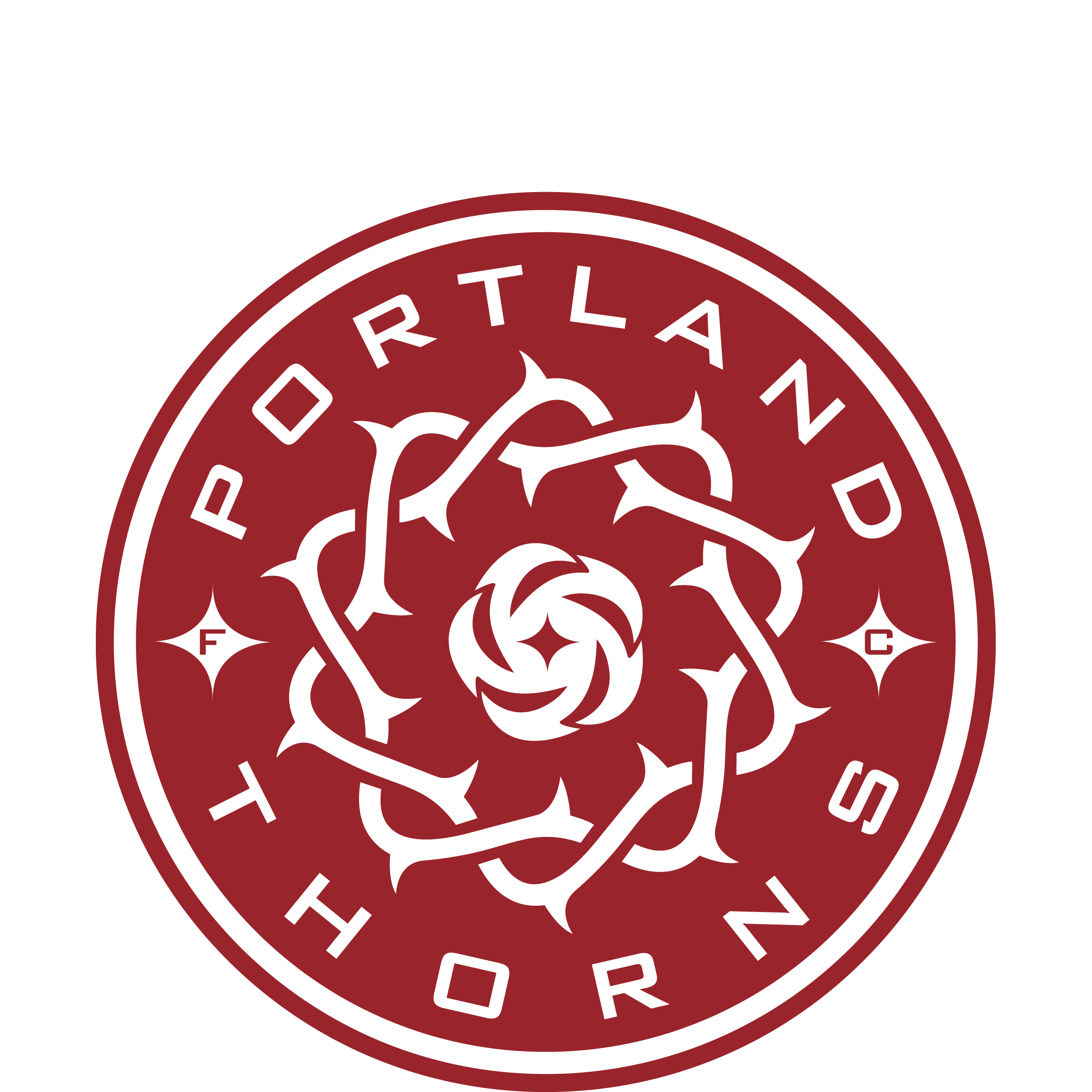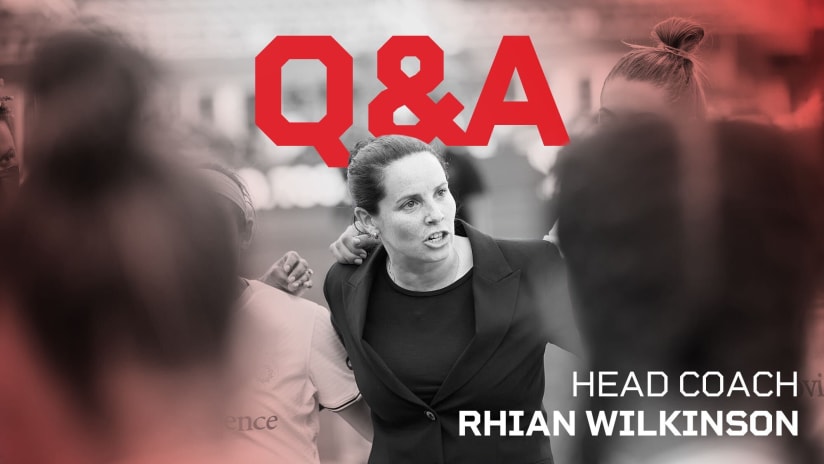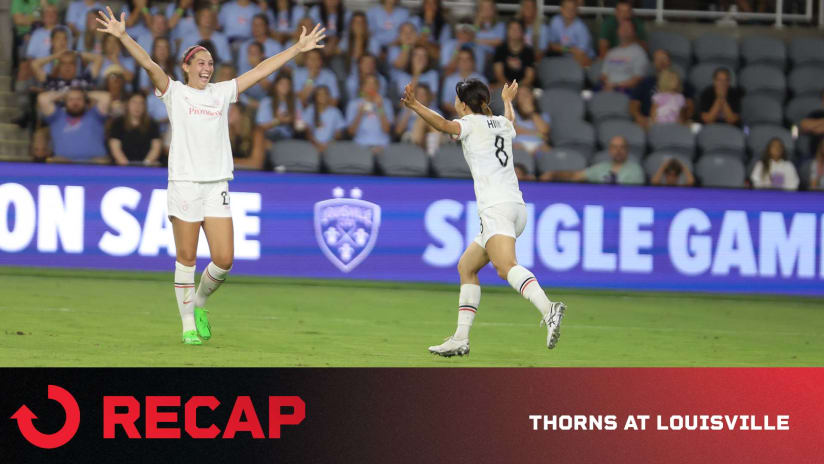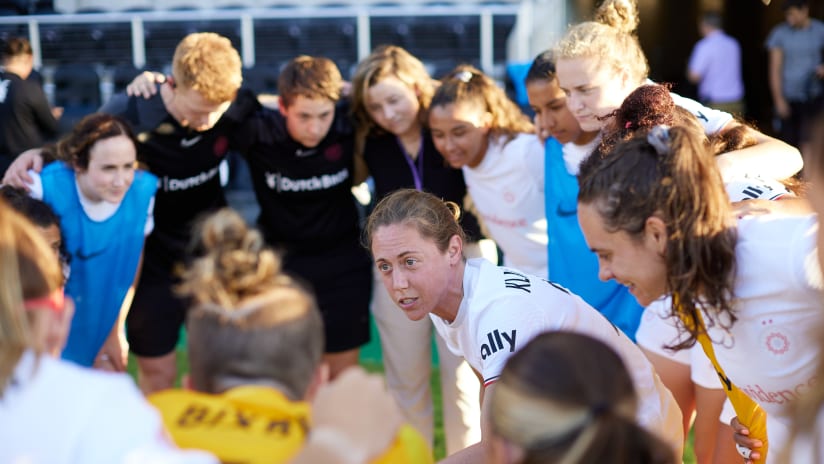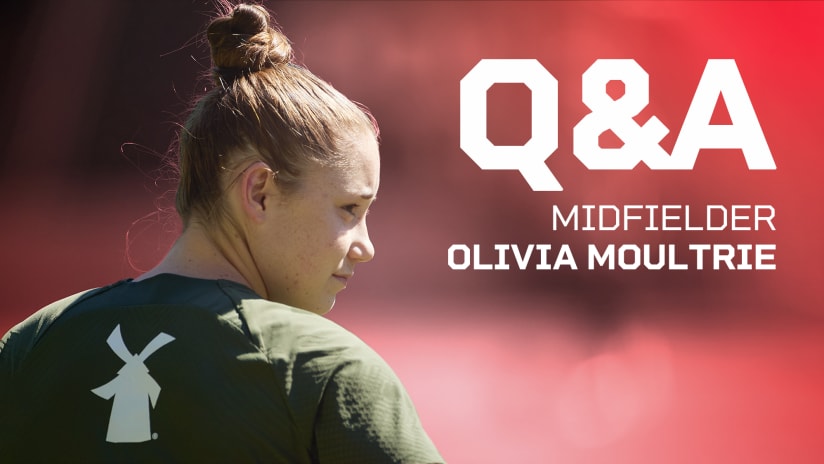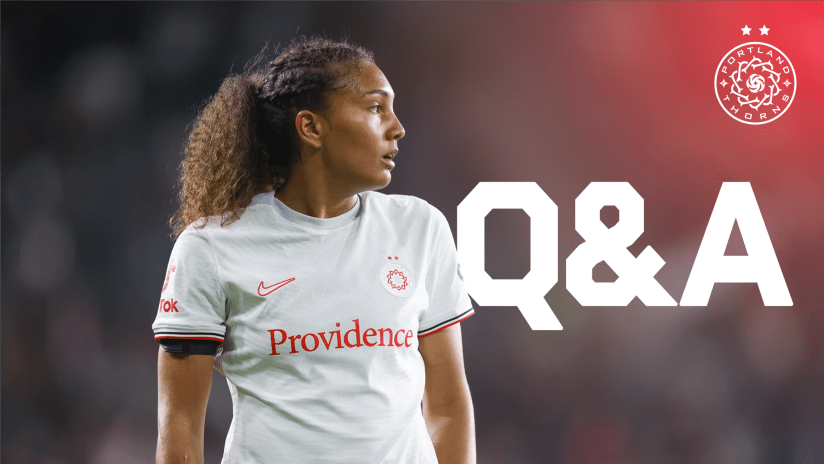When Rhian Wilkinson took over as head coach in November 2021, nobody knew for sure what Portland Thorns FC would look like.
A veteran of the Canadian Women’s National Team, Wilkinson logged only one official appearance for the Thorns in 2015, before she embarked on her coaching career. Like with any other first-year head coach, other question marks lingered, like the hole left behind in the midfield by 2018 NWSL MVP Lindsey Horan, on loan in France. Then, a promising start to the 2022 Challenge Cup ended in disappointment as the defending champs failed to make it past the group stage. The Thorns managed to take just six points out of its first possible 15 from the regular season.
Nearly four months later, with Portland hovering just below first place in the standings and scoring more goals than any other team—not to mention a growing 2022 playlist of highlights of world-class goals, memorable wins, and hard-fought comebacks—those preseason question marks are all but gone.
Perhaps no other game so far showed her determination more than the thrilling showdown with Angel City FC on July 1: In front of a hostile crowd, several key players gone on international duty, and the team down a goal after the first minute, the Thorns fought back. Yazmeen Ryan’s equalizer, in the sixth minute of second half stoppage time, showed what Wilkinson’s Thorns are made of: grit, determination, and a whole lot of joy.
On the sidelines that day, Wilkinson’s reaction to the late goal was equally telling: all smiles, but no surprise. She believes in all of her players. Wilkinson sat down with us to discuss the challenges her team has faced this year and her growth as a first-year head coach.
How would you describe the dynamics of the team over the past month?
Rhian Wilkinson: These players like each other and it’s such a privilege to be around that because there’s a lot of laughter at training sessions, but also a lot of high standards and expectations. They like training and traveling together, those are opportunities to know one another better. I think it has been a great month because new friendships have formed, which helps on the field, but it’s nice to see that no matter who is in or out.
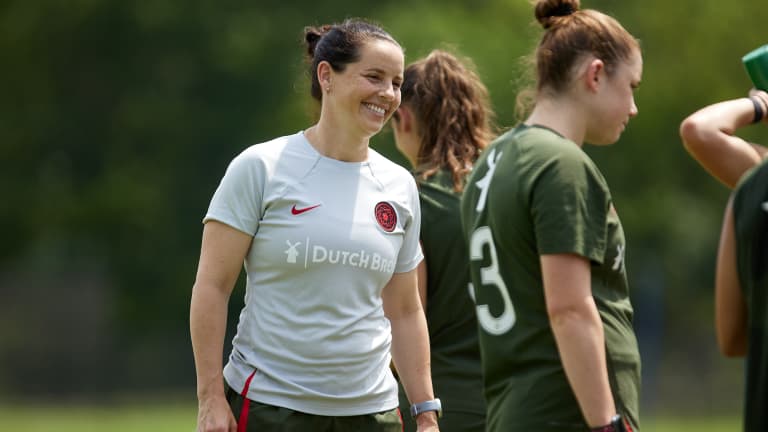
With several players away on international duty, how do you feel the team performed?
RW: We left for the international break on a real high with very confident players, which is exactly what you want. We knew we had good depth; these players have been training hard since the beginning of the season. I think we do sometimes look at these international windows as second-string, but it’s players who have been hitting standards the whole season and are getting an opportunity to show what they have been doing.
Has there been anyone specifically you have learned more about during this window?
RW: Look at the game against Gotham\], we had five different goal scorers. [Hannah \[Betfort\] comes in and scores a worldie. Taylor Porter is starting and scores straight away. These are players who have been earning their minutes for a long time through the season and took their opportunities. They weren’t doing anything extra; they were just in the right spot and doing what we wanted.
Depending on how a game rolls out, it might look slightly different, but our principles, our DNA and what we’re trying to achieve, doesn’t change based on personnel. I’m loathe to put a name [on a specific player] because it doesn’t actually matter. What I like to see is how many goal scorers we had, how we attacked the box, how we retained possession in dangerous areas of the field and with real purpose.
Which of the three games during that break do you feel you learned the most from?
RW: It was a fairly weak penalty kick early in the Angel City game away [on July 1]. It was our first time as this group with some players missing and I was so impressed with how they reacted to [conceding first] and kept to our game plan. It wasn’t as clean as we’d want it to be and we didn’t get as many opportunities as we’d have liked, but to see a mentality like that –– they never gave in and kept going –– that was a very important match. Angel City is a good team, they had a fantastic crowd and we had every excuse with the call in the first minute against us –– it’s really easy to let those things get to you, but they didn’t.
Then away to our biggest rivals, the Reign, with Kim Little and Jess Fishlock on the field, I thought we should have won. That was a good thing because when do we have those times where we go into their house in front of their fans and come away frustrated with a tie?
Then we were at home against Gotham and the first 15-20 minutes were really good, but then I felt we tapered off. I loved that we went into halftime up 3-0 and it’s not good enough. That’s the standard we set no matter who’s here and who is not; it’s how we play and our DNA as a club. We talked about having a successful break and five points out of three tough games with some players missing is a successful break and we keep pushing forward.
As a first-year head coach, what do you try to learn during these windows?
We have a very, very good team, and if we talk about starters, we have 15-16 starters that can start anywhere in the league on any team.
RW: Then we have development players that are right underneath pushing all the time. If we’re going to be a league that plays games during international competition, then part of our strategy as a club has to be winning these breaks.
These points are critical and last year Mark [Parsons’] team won the shield because they nailed the break. That’s something we have to continue to do as a club and see it as a real opportunity for players to get their minutes on the field and really show their value, because there aren’t very many clubs. It’s tough for players to get seen and that’s what we use those international breaks for.
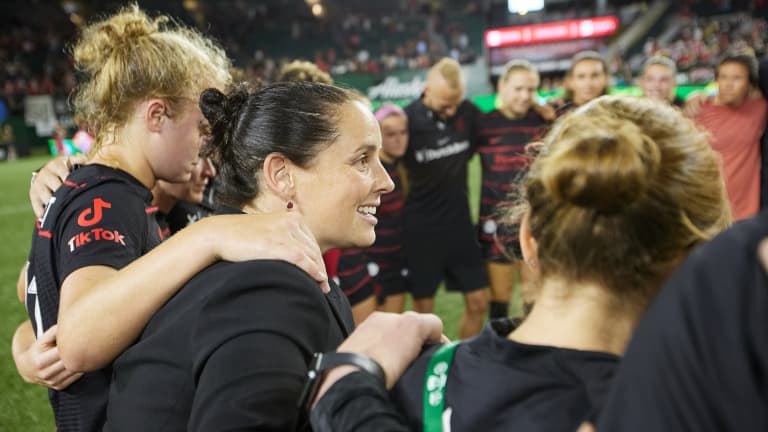
How do you balance putting pressure on players while prioritizing their individual development?
RW: That’s [the players’] own culture. Our job as a staff is to nurture it. They’re always going to feel the pressure. You can’t hide from it. It’s self-inflicted because they really care. In a game they can’t hear the coaching staff, especially here in Portland with our amazing fans. They have to help one another and that’s what’s cool. The only way to relieve the pressure is that they feel people have their back, that they’re available to pass to, but also available and communicating to make sure standards are being driven. Then performances happen because they are just playing.
What has the reintegration process looked like so far?
RW: For us, these are still opportunities to be out on the field and play. Sessions are not games, but partnerships have to be strengthened and dug into. I don’t have a clear starting XI for every game. Depending on who we are playing and what skill sets I want on the field, different partnerships change so you have to know all your teammates. That’s what we’re working on and these sessions are fun for [internationals] to get back out there. They’ve been playing different ways with their national teams, but it’s about the game and getting back to our principles, making sure they’re ready to go.
How do you think having managed the transition between club and country as a player will help you relate to international players returning and help with the reintegration process?
RW: I played in Europe most of my club days and they had breaks during international windows, so it was clearer. That being said, there are advantages to this window. It’s a huge advantage to have top-quality players that are on the world stage, but then in international breaks you can really get hurt.
Any final thoughts?
RW: I think these are reflections we aren’t ready for. It was a very good window in terms of connection with the staff and players as well as among players themselves. When there are fewer players, you are able to “lock it in.”
I will take away that we’ve got really good people on this team and around the team. It reminded me of my biggest priority:
I’ll take a good person who can play versus a great player who’s not a good person.
I don’t want them in this environment because it’s pretty special what we have here.
